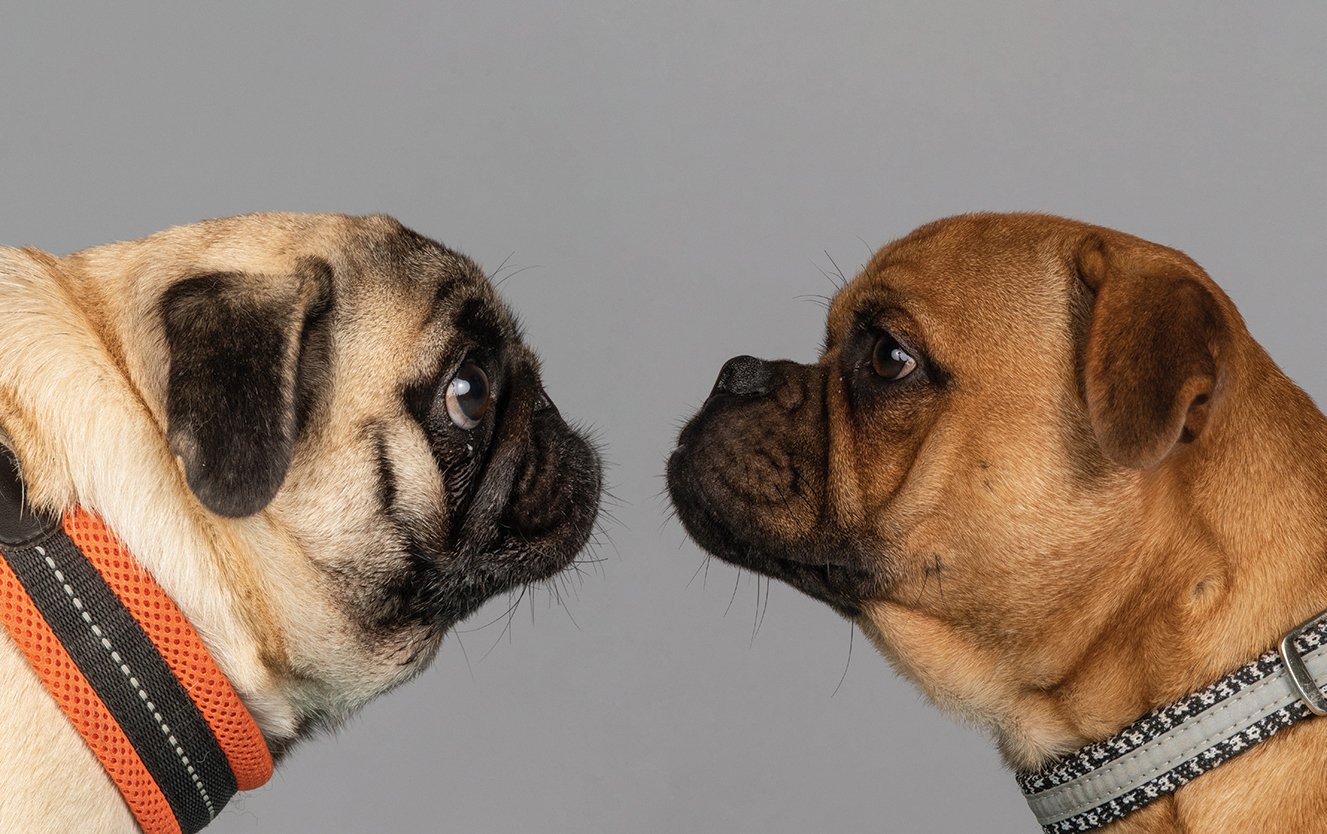'Pugs' snoring isn't as cute as it seems'
Dogs with a short snout that are always short of breath, hairless cats that can't navigate due to their lack of whiskers and dog breeds that are prone to epileptic fits. The breeding of purebred dogs and cats has led to all sorts of harmful physical features and hereditary diseases. We spoke with Minister of Agriculture, Nature and Food Quality Carola Schouten and veterinarian and geneticist Hille Fieten to discuss their joint efforts towards more sustainable and healthy breeding.

Minister Carola Schouten managed to find time for the interview despite her hectic schedule. As she explains, animal welfare is an important part of her work. 'It's important to me that we treat animals with respect. I'm also seeing the issue of animal welfare pop up in more public debates. We're all responsible for taking good care of our animals, so I'm glad we're finally discussing the issue.'
Hille Fieten, what's your view on the current problems in the pet breeding business?
Fieten: 'Nearly two-thirds of the animals I treat at the university clinic suffer from a hereditary disease or harmful trait specific to their breed. Those symptoms are difficult to treat. I usually can't do much to help, but we could have prevented the problems with a responsible breeding policy. As a veterinarian and researcher, I believe the latest developments in genetics can really help us create a healthy pet population.'
Under Dutch law, breeders must take measures to prevent serious hereditary defects and diseased offspring. Unfortunately, this legal requirement has proven difficult to enforce in practice.
Schouten: 'Some animals, like short-snouted dogs and short-legged cats, are bred for specific physical traits without any thought for the animal's health. As it turns out, the law is hard to enforce in practice. We asked the Faculty of Veterinary Medicine's Companion Animal Genetics Expertise Centre to formulate workable criteria.'
Fieten: 'Schouten has taken a very important step in the right direction. The current problems have a long history. Veterinarians and other stakeholders have been sounding the alarm about animal welfare for over forty years now. Until now, the government has always shifted responsibility back to the industry. That didn't work, and the problems have only gotten worse. I really admire and respect the Minister's clear-cut approach.'

Still, there shouldn't be any need for laws and enforcement, right?
Fieten: 'That's true, but it turns out we need laws to shake people up and make them take responsibility. For example, breeders and owners seem to have gotten used to the idea that puppies are now born with a C-section, or that certain dog breeds snore because they can't breath properly.
People tend to think the snoring is cute, but it's not.'
So what can we do to address the problems, other than legalisation and enforcement?
Schouten: 'We need a change in mindset. Breeders, the Cynological Federation, dog owners and veterinarians all have a part to play in that regard. For example, veterinarians need to advise dog owners. As Hille just explained, most people aren't aware of the health issues. Breeders are also responsible for choosing the right breeding stock, and inspectors will have to start prioritising health over appearance.
Fieten: 'That's right. The Faculty of Veterinary Medicine will be playing a leading role in that regard. We've now developed the Fit2Breed method to help breeders find the most suitable male for their bitch. It's basically Tinder for dogs', Fieten laughs. We also set up the FairDog platform in collaboration with other industry stakeholders. The platform will eventually help consumers buy a healthy and sociable dog. 'We're also seeing lots of new developments in research. For example, we're developing new DNA tests for hereditary diseases in cats and dogs. We can use them to test breeding stock and prevent hereditary diseases.
'The Dutch approach is drawing a lot of international attention'.
The Dutch guidelines have now been translated into German and English. So how do other European countries view the new guidelines?
Schouten: 'The Dutch approach is drawing a lot of international attention. I regularly share this information with other member states working to regulate the trade in purebred dogs, so we can learn from each other's experiences.'
Do you have any pets of your own?
Schouten: 'I grew up on a farm surrounded by animals, including a dog. That experience taught me that animals are a source of happiness, support and friendship. I don't have any pets at the moment because I spend so much time away from home. Still, you never know what the future holds.
Fieten: 'I also grew up in the countryside. We used to have ponies, cats and rabbits, and there were usually bottle-fed lambs in the spring. Unfortunately we don't have any pets at the moment. Our cat Belle just died. She lived till 19.5, which is definitely a respectable age.'

